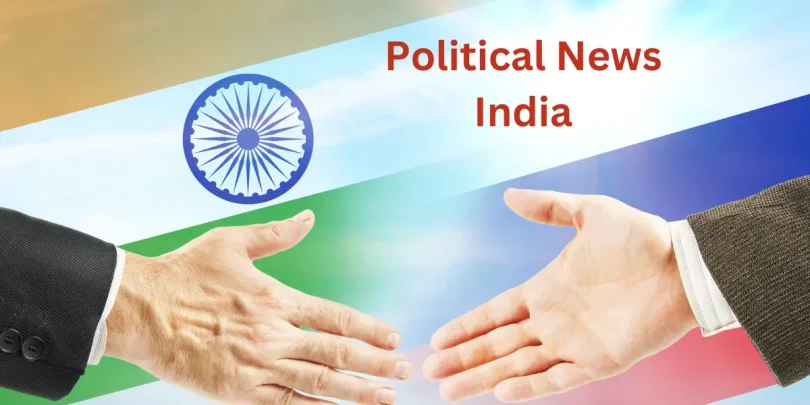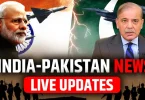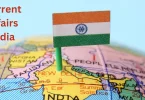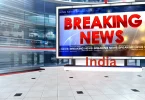India, the world’s largest democracy, is a hotbed of dynamic political developments that shape not just the nation but also global geopolitics. From high-stakes elections to controversial policy changes, political news India remains a topic of intense discussion among citizens, analysts, and international observers.
Whether it’s the latest electoral battles, corruption scandals, or groundbreaking reforms, staying updated on political news India is crucial for anyone who wants to understand the nation’s direction. In this comprehensive guide, we’ll dive deep into the most recent happenings, breaking them down into key categories for better clarity.
Trade and Economic Policies
India’s Strategic Tariff Revisions Amid U.S. Trade Tensions
In a calculated move to safeguard its economic interests, India is contemplating reducing tariffs on $23 billion worth of U.S. imports. This initiative aims to counterbalance the potential repercussions of forthcoming U.S. reciprocal tariffs that could jeopardize $66 billion of Indian exports. The proposed tariff cuts would affect over half of the U.S. goods currently subjected to Indian tariffs, with key items like meat, maize, wheat, and dairy products remaining protected.
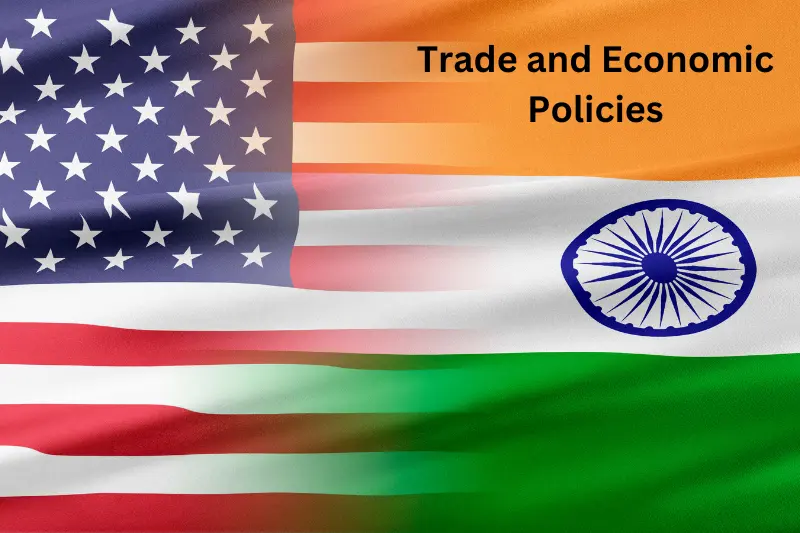
This development follows Prime Minister Narendra Modi’s visit to the U.S., where both nations agreed to work towards an early trade deal. However, U.S. President Donald Trump’s firm stance on tariffs could significantly impact several Indian export sectors.
Elimination of Digital Advertisement Tax to Foster U.S. Relations
In a bid to address U.S. concerns and facilitate a trade deal, India plans to eliminate a 6% tax on digital advertisements that affects major U.S. tech companies like Google, Meta, and Amazon. This amendment to the Finance Bill 2025 is expected to be approved by Parliament, becoming effective from April 1. The decision aims to ease tensions with the United States, which has criticized the tax as unfairly targeting foreign companies. The removal is anticipated to benefit U.S. tech firms and promote better trade relations, targeting a $500 billion two-way trade by 2030.
Corporate Taxation and Legal Disputes
Volkswagen’s $1.4 Billion Tax Controversy
Indian authorities have issued a $1.4 billion tax bill to Volkswagen, alleging that the company’s Indian unit mislabeled imports to pay lower duties. The customs department claims that Volkswagen imported complete car kits labeled as spare parts to benefit from reduced tax rates since 2012, resulting in significant underpayment of duties. Volkswagen is challenging the bill in Mumbai’s high court, arguing that delays were due to tax officials’ inaction. This case highlights broader issues with India’s retrospective taxation practices and could impact the country’s attractiveness to multinational investors.
Freedom of Expression and Political Satire
Mumbai Comedy Club Vandalized Following Political Satire
A recent incident at Mumbai’s Habitat comedy club has raised concerns about freedom of expression in India. Comedian Kunal Kamra performed a satirical song criticizing Maharashtra’s Deputy Chief Minister Eknath Shinde, leading to vandalism of the club by supporters of Shinde’s Shiv Sena party. Authorities arrested over 10 individuals, including Shiv Sena’s youth leader Rahul Kanal. Kamra refused to apologize, defending his right to political satire. Following the incident, authorities began demolishing parts of the Habitat club, alleging illegal construction, leading to its temporary closure. This event underscores the growing threats to freedom of expression in India.
Social Justice and Political Empowerment
Mayawati Advocates for Dalit Political Power
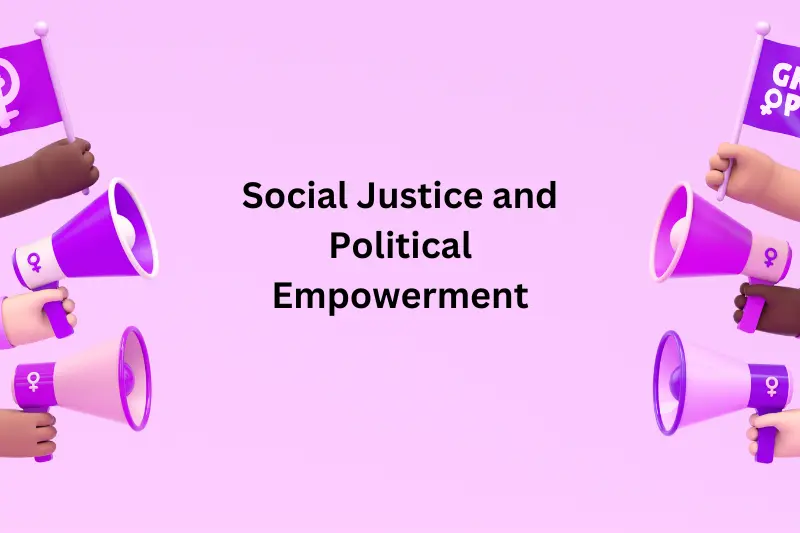
Bahujan Samaj Party (BSP) chief Mayawati has emphasized the importance of political power in achieving ‘achche din’ (good days) for Dalits. She called for a renewed and intensified campaign to unite all sections and secure political power to end social discrimination. Mayawati’s statements underscore the ongoing discourse on social justice and empowerment within India’s political landscape.
Parliamentary Proceedings and Opposition Protests
Debates Over MGNREGA Fund Allocations
Opposition Members of Parliament in the Lok Sabha have protested over delayed payments under the Mahatma Gandhi National Rural Employment Guarantee Act (MGNREGA), with representatives from Kerala and Tamil Nadu raising concerns about pending funds. The Minister of State for Rural Development assured that payments are being processed and denied any bias, citing funds allocated to various states. The Union Agriculture Minister also defended the government’s track record on MGNREGA fund allocation
If you’re ready to level up, this is your first step.
Breaking News Today: Jaw-Dropping Updates You Need Now!
Unmissable Global News Updates Shaking the World Today
Shocking International News: Global Events That Will Stun You
Current World Events: Surprising Facts You Need to Know
Electoral Dynamics and Political Realignments
Outcomes of the 2024 Indian General Election
The 2024 Indian general election marked a significant chapter in the nation’s democratic journey. The National Democratic Alliance (NDA), led by Prime Minister Narendra Modi, secured a third consecutive term, albeit with a reduced majority. The NDA’s lead was described as a “historical feat,” while the opposition, led by Congress party president Mallikarjun Kharge, termed it a “moral and political loss” for Modi and a “win for democracy.” The election witnessed a record voter turnout, with over 642 million voters casting their ballots.
Shifts in Political Alliances
The election results prompted realignments in political alliances. Independent MPs from Sangli and Purnia, Vishal Patil and Pappu Yadav, both primary members of the Congress party, extended their support to it after the election, effectively increasing the opposition alliance’s tally to 236. On 8 June, the leadership of the Congress Party unanimously nominated Rahul Gandhi to become Leader of the Opposition, a position which had been vacant since 2014. He formally assumed the post on 25 June.
Regional Political Movements
In Maharashtra, the political landscape experienced turbulence with the defection of Eknath Shinde from the Shiv Sena, leading to the formation of a new faction. This move was met with both support and criticism, reflecting the complexities of regional politics in India.
International Relations and Diplomatic Engagements
India’s Role in Global Peacekeeping
Former Australian Prime Minister Tony Abbott has urged India to consider deploying peacekeepers in Ukraine, citing the country’s growing global influence and strong military capabilities. Abbott emphasized that India’s position as a neutral yet influential global player could help de-escalate conflicts and bring about diplomatic resolutions.
India has traditionally played a significant role in UN peacekeeping missions, contributing personnel to global operations. However, direct involvement in Ukraine would mark a significant shift in its foreign policy approach. While India has maintained a balanced stance on the Russia-Ukraine war, engaging in peacekeeping efforts could strengthen its image as a global mediator.
Strengthening Ties with Neighboring Countries
India continues to expand its diplomatic reach in South Asia, focusing on strengthening relationships with Bangladesh, Nepal, and Sri Lanka. Recent agreements on trade, infrastructure development, and defense cooperation have further reinforced India’s influence in the region.
In Bangladesh, India has signed key agreements to enhance energy cooperation and cross-border connectivity. The India-Bangladesh pipeline project, inaugurated earlier this year, is expected to improve energy access in the region. Similarly, India has committed financial aid to Nepal for infrastructure projects, fostering closer bilateral ties.
Electoral Reforms and Governance Challenges
Push for Electoral Reforms
India’s Election Commission has been actively working on electoral reforms aimed at enhancing transparency and ensuring fair elections. Key proposals include the introduction of remote voting for migrant workers, stricter regulations on political funding, and measures to curb misinformation during campaigns.
The discussion around electoral bonds has been particularly contentious. While the government argues that these bonds ensure clean funding, critics claim they allow anonymous donations, leading to potential corruption. The Supreme Court is currently reviewing petitions challenging the validity of electoral bonds, and a verdict is expected soon.
Challenges in Governance and Public Policy
Despite economic growth, India faces significant governance challenges, including unemployment, inflation, and social inequalities. The government’s ambitious welfare schemes, such as free ration distribution and healthcare initiatives, aim to provide relief to lower-income groups. However, critics argue that more structural reforms are needed to create sustainable economic opportunities.
In the education sector, recent curriculum changes have sparked debates on historical narratives and ideological biases. While the government defends these revisions as necessary updates, opposition leaders and scholars argue that they undermine academic independence.
Political Scandals and Corruption Cases
High-Profile Corruption Investigations
Several high-profile corruption cases have surfaced in recent months, shaking the political landscape. Investigations into financial irregularities involving corporate leaders and politicians have drawn public attention, raising concerns about transparency and accountability.
The Enforcement Directorate (ED) has intensified its scrutiny of political leaders accused of money laundering. Cases against opposition leaders, including those from the Congress and Aam Aadmi Party, have led to allegations of political vendetta. Meanwhile, ruling party members accused of similar offenses claim that these investigations are politically motivated.
One of the most notable cases involves alleged irregularities in state-level infrastructure projects, where senior officials are accused of embezzling public funds. The case is currently under judicial review, with key hearings scheduled in the coming months.
The Future of Indian Politics
As India navigates through these political complexities, the coming months will be crucial in shaping its future. The balance between economic growth, social justice, and governance reforms will determine how the country progresses on both domestic and international fronts.
With elections in several states approaching, political parties are ramping up their campaigns, promising new policies and development initiatives. The role of regional parties will be critical in influencing national politics, potentially leading to new alliances and power shifts.
Conclusion
In conclusion, political news India remains a dynamic and evolving space, with key developments impacting governance, diplomacy, and public life. As the nation continues to grow, political discourse will play a pivotal role in shaping policies and ensuring accountability.
FAQs
What are the major political issues in India today?
India is dealing with several political challenges, including economic policies, electoral reforms, corruption cases, freedom of expression, and governance issues. These topics dominate national debates and shape future policies.
How does India’s foreign policy impact its political landscape?
India’s foreign policy plays a crucial role in shaping its political decisions. Strengthening ties with neighboring countries, trade negotiations with global powers, and diplomatic stances on international conflicts all influence domestic politics.
What are the key election reforms being discussed in India?
The Election Commission is working on reforms such as remote voting for migrant workers, stricter regulations on political funding, and measures to prevent misinformation during campaigns. These changes aim to enhance transparency in the electoral process.
How does corruption affect India’s political system?
Corruption remains a significant challenge, with high-profile cases surfacing across party lines. Investigations into money laundering and financial irregularities impact political stability and public trust in governance.
What role do regional parties play in Indian politics?
Regional parties have a strong influence in shaping national policies and government formations. They often act as kingmakers in coalition governments and address state-specific issues that national parties might overlook.

